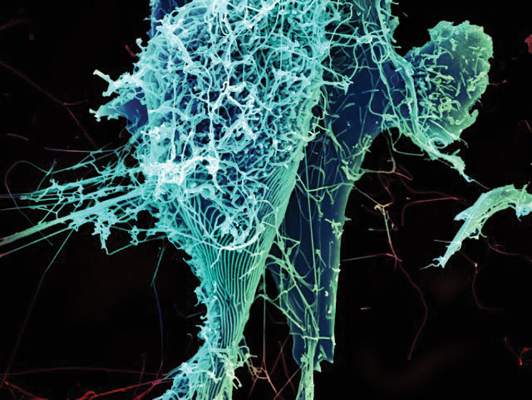User login
The National Institutes of Health and the National Institute of Allergy and Infectious Diseases are speeding efforts to provide access to safe, scientifically proven Ebola treatments and vaccines, according to a post on the NIH Director’s Blog.
Two vaccine candidates are now undergoing phase I human clinical testing after having proven effective in animals, said Dr. Anthony S. Fauci, director of NIAID, and Dr. Francis S. Collins, director of the NIH, in the blog post.
Development and testing of ZMapp, the experimental drug that has already been administered to some patients infected with Ebola, is ongoing, they said, though its effectiveness remains unclear. Manufacturing of ZMapp is being accelerated to allow for wider clinical testing.
NIAID is currently looking at additional agents with potential activity against Ebola, including BCX4430, a drug that will enter a phase I human clinical trial early next year, and brincidofovir, an antiviral that has shown some ability against Ebola viruses in cell cultures.
The HIV drug lamivudine is also being investigated in cell cultures in U.S. labs.Read the full post on the NIH Director’s Blog.
The National Institutes of Health and the National Institute of Allergy and Infectious Diseases are speeding efforts to provide access to safe, scientifically proven Ebola treatments and vaccines, according to a post on the NIH Director’s Blog.
Two vaccine candidates are now undergoing phase I human clinical testing after having proven effective in animals, said Dr. Anthony S. Fauci, director of NIAID, and Dr. Francis S. Collins, director of the NIH, in the blog post.
Development and testing of ZMapp, the experimental drug that has already been administered to some patients infected with Ebola, is ongoing, they said, though its effectiveness remains unclear. Manufacturing of ZMapp is being accelerated to allow for wider clinical testing.
NIAID is currently looking at additional agents with potential activity against Ebola, including BCX4430, a drug that will enter a phase I human clinical trial early next year, and brincidofovir, an antiviral that has shown some ability against Ebola viruses in cell cultures.
The HIV drug lamivudine is also being investigated in cell cultures in U.S. labs.Read the full post on the NIH Director’s Blog.
The National Institutes of Health and the National Institute of Allergy and Infectious Diseases are speeding efforts to provide access to safe, scientifically proven Ebola treatments and vaccines, according to a post on the NIH Director’s Blog.
Two vaccine candidates are now undergoing phase I human clinical testing after having proven effective in animals, said Dr. Anthony S. Fauci, director of NIAID, and Dr. Francis S. Collins, director of the NIH, in the blog post.
Development and testing of ZMapp, the experimental drug that has already been administered to some patients infected with Ebola, is ongoing, they said, though its effectiveness remains unclear. Manufacturing of ZMapp is being accelerated to allow for wider clinical testing.
NIAID is currently looking at additional agents with potential activity against Ebola, including BCX4430, a drug that will enter a phase I human clinical trial early next year, and brincidofovir, an antiviral that has shown some ability against Ebola viruses in cell cultures.
The HIV drug lamivudine is also being investigated in cell cultures in U.S. labs.Read the full post on the NIH Director’s Blog.

